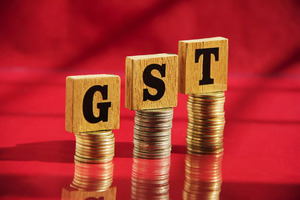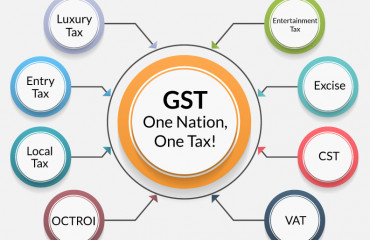 iStock
iStockSince the introduction of GST in July 2017, businesses have been dealing with interpretational and technical challenges resulting in protracted litigation with respect to GST laws. In the absence of GST Appellate Tribunals, taxpayers have often been invoking writ jurisdiction to seek relief from High Courts. Given the pendency of matters, the constitution of the GST Appellate Tribunal (GSTAT) has been much awaited in recent years for judicious disposal of cases.
The proposition of setting up these Tribunals gathered some momentum with cabinet approval and subsequent notification for the creation of the GSTAT National Bench at New Delhi, approval for the formation of the state tribunals in identified states and formation of GST Tribunal Rules for appointment of members in the past few years.
However, factors such as qualification of the members of the Tribunal benches, the ratio of judicial members and technical members, empowerment of state governments for changing the appointment criteria of technical members etc. have been a bone of contention in several petitions, which led to delay in the constitution of the tribunal. Given the contested infirmities in the framework of GSTAT, the GST Council formed a Group of Ministers (GoM) in June 2022 to propose amendments to the legal framework and bring them in conformity with these judicial decisions and directions. The GoM was tasked with making recommendations for amendments to the relevant provisions of the GST laws to ensure that the interests of the central and state government are well guarded and the framework for set up and operation of these Tribunals is legally tenable.
As per the current construct, GSTAT can hear matters in an appeal against the orders passed by the GST appellate authority or revisional authority. National GSTAT can take up matters where one of the issues involved is regarding the place of supply while State GSTATs will address appeals on all other GST issues.
Interestingly, the proposed national appellate forum for advance rulings (a separate forum for advance rulings) is limited to other parameters such as classification, valuation, time of supply, input tax credits etc., given the fact that the advance rulings cannot be obtained on the question of the place of supply. Therefore, the GST laws envisage the creation of two distinct appellate fora, the implementation of which is some distance away from reality.
Recently, the GoM has finalised its recommendations, which are expected to be deliberated in the upcoming GST Council meeting. These recommendations are understood to cover several aspects including enablement of the state government to alter the qualification requirements of technical members, determination of the composition of the bench and formation of a selection committee for the appointment of members. It will be interesting to see if such amendments will also extend to forming a common appellate forum, which covers appellate remedy for advance rulings. In case the authorities consider the formulation of a common appellate forum, the challenges will include the qualification of members, composition of bench amongst others.
The biggest question staring at all stakeholders is the efficiency of the proposed Tribunal given the experience of Tribunals under the erstwhile regime where a pendency of 5 to 7 years was the norm.
Once the Tribunals are set up, taxpayers would need to take stock of their existing litigation matters and reconsider their controversy management strategy in respect to matters, which were in abeyance after the first appeal, or the ones where the writ route was explored.
At a time when GST audits by the tax officers are in full swing and controversies are brewing, these Tribunals could be a lifesaver. Fortunately, the entire process of setting up these Tribunals finally seems to be picking up steam. Recommendations of the GoM regarding the setup and operational framework of these Tribunals are now expected to be taken up by the GST Council in its next meeting wherein tangible steps for a way forward could be laid down. Needless to say, these Tribunals are much awaited for expediting the disposal of matters and helping the industry rebuild confidence with respect to dispute resolution under the GST regime.
Smita Roy is Partner & Leader (North)- Indirect Tax and Siddharth Tandon, Partner- Indirect Tax, BDO India.
